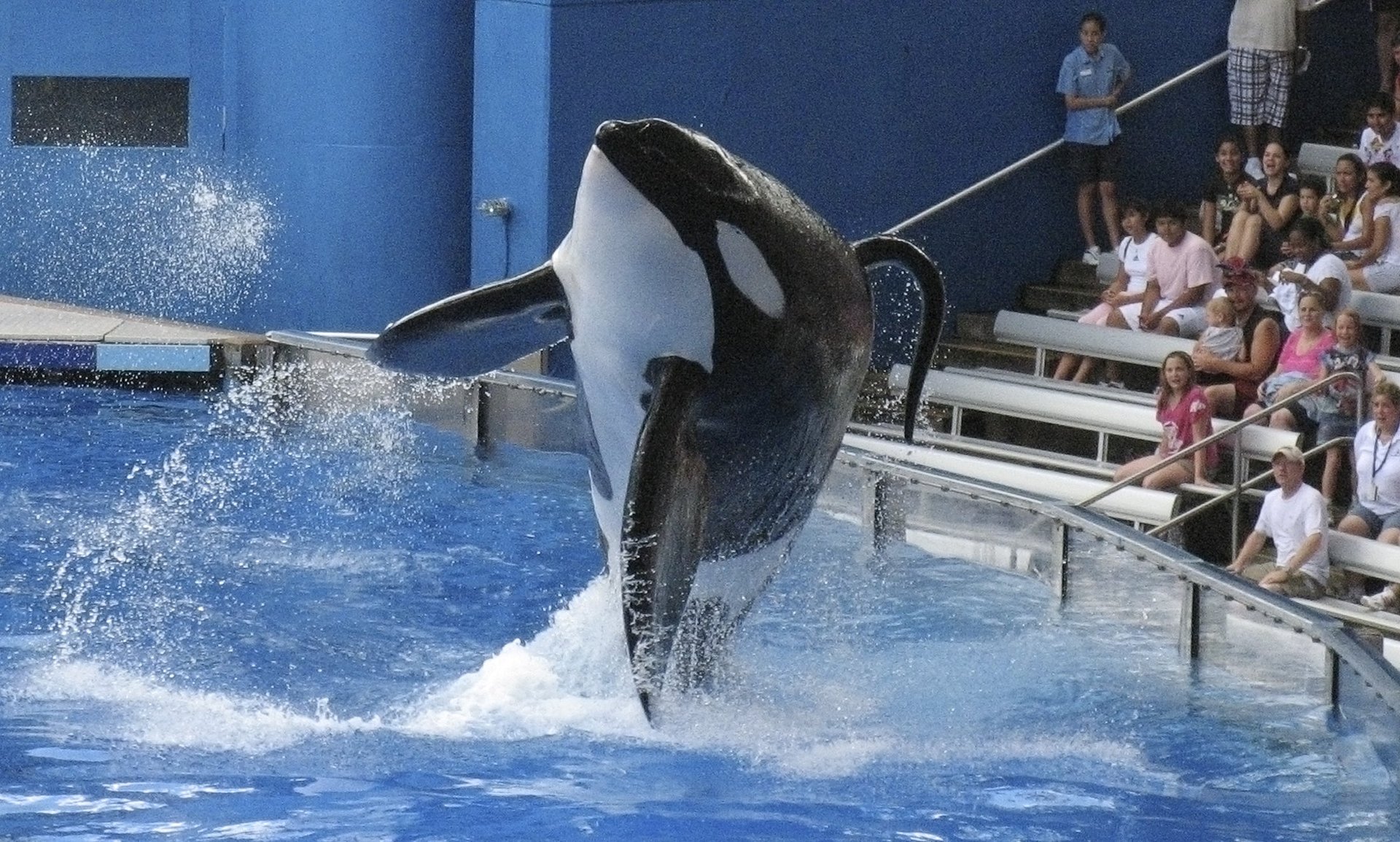Tilikum, the infamous SeaWorld killer whale from “Blackfish,” has died
An orca named Tilikum lined SeaWorld’s pockets for decades as a star performer in the marine park’s “Shamu” shows before ultimately dragging its reputation, and the future of those shows, underwater.


An orca named Tilikum lined SeaWorld’s pockets for decades as a star performer in the marine park’s “Shamu” shows before ultimately dragging its reputation, and the future of those shows, underwater.
The 36-year-old killer whale, who died today after a long struggle with a lung infection, will likely be remembered most not for playing Shamu but for his role in the 2013 documentary “Blackfish,” which turned public opinion against SeaWorld’s practice of breeding and raising orcas in captivity.
“Tilikum passed away early this morning, January 6, surrounded by the trainers, care staff and veterinarians,” SeaWorld announced. He had been in SeaWorld’s care for 25 years and in captivity for 33.
In 2010, Tilikum killed a SeaWorld trainer named Dawn Brancheau during a public “Shamu” show, setting off an intense debate about SeaWorld operations and the ethics of keeping orcas captive for human entertainment.
A full account of Brancheau’s death (“he started pushing her with his nose like she was a toy,” a witness said) and the ensuing public relations nightmare and moral reckoning began with a 2010 Outside magazine article by Tim Zimmerman, “The Killer in the Pool.”
Zimmerman went on to co-write and produce the “Blackfish” documentary, which stirred up outrage and put intense pressure on SeaWorld to end its orca breeding program. The park yielded to that pressure in March 2016, around the same time it announced that Tilikum was suffering from a life-threatening bacterial lung infection.
In its statement about Tilikum’s death today, SeaWorld added:
Tilikum’s life will always be inextricably connected with the loss of our dear friend and colleague, Dawn Brancheau. While we all experienced profound sadness about that loss, we continued to offer Tilikum the best care possible, each and every day, from the country’s leading experts in marine mammals.
“The last generation of captive orcas will all pass eventually in light of SeaWorld’s decision to discontinue breeding its orcas, and the era of keeping these great animals in captivity will actually end,” said Wayne Pacelle, CEO of the US Humane Society.